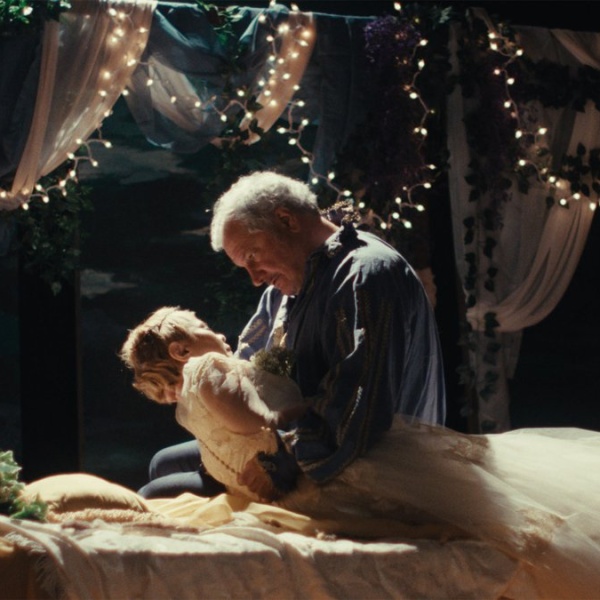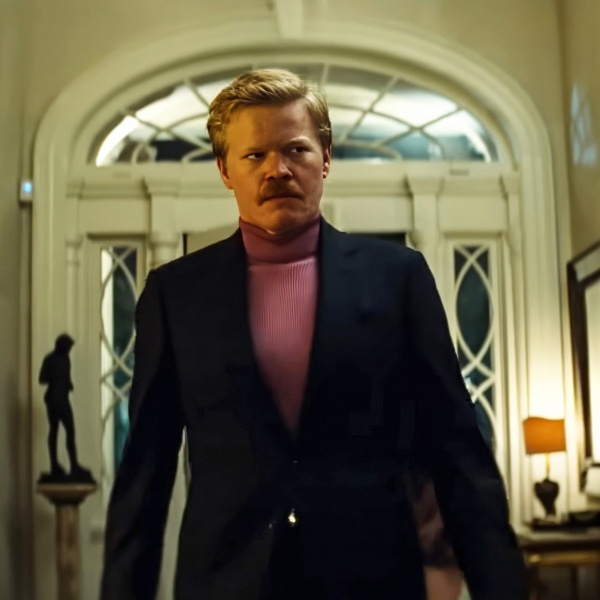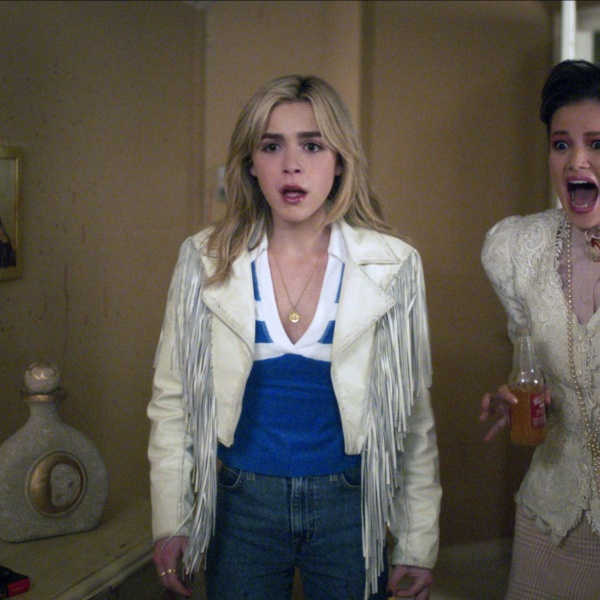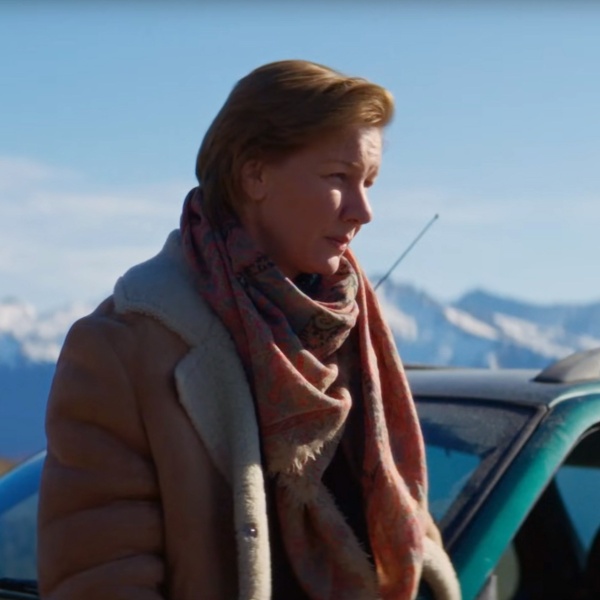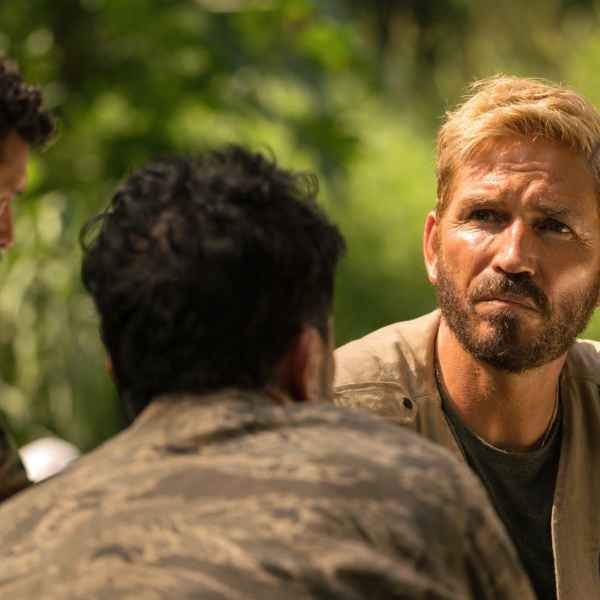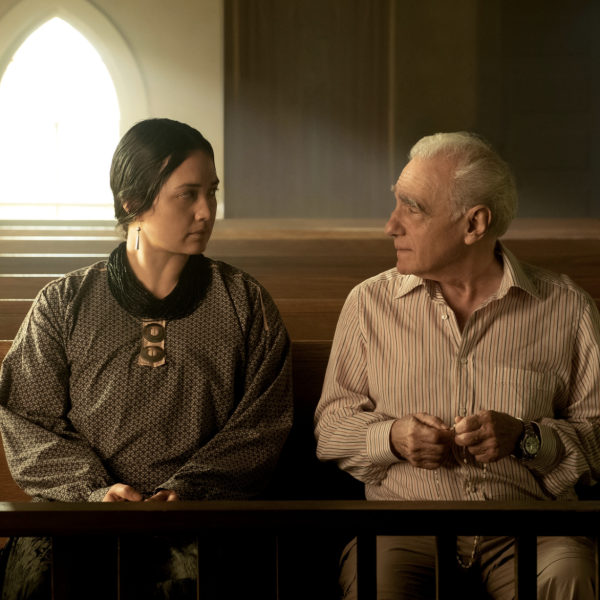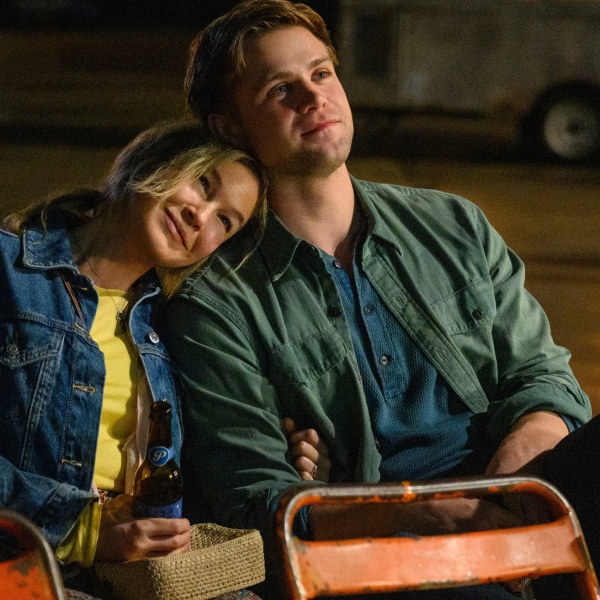
If there’s one theme that’s been prevalent — nay omnipresent — in American comedy (and some dramas) in the last half-decade or so, it’s that of arrested development. The male (for they are usually male) who’ve been so coddled by parents, by society, by expectations, that they remain locked in a state of permanent adolescence. Forty is the new thirty. Thirty is the new twenty. Twenty is the new fourteen. Thematically, It’s been everywhere from “Failure to Launch” and “The 40-Year-Old Virgin” to “Greenberg” and “Blue Valentine,” and it might even apply to you. But at this point, is there anything new to say about the phenomenon?
Enter Todd Solondz. The difficult little brother of the independent cinema world is coming off a mostly unsuccessful attempt to return to former glories with 2009’s “Happiness” semi-sequel “Life in Wartime,” and had promised lighter fare for his latest, “Dark Horse,” claiming that for the first time in his career that he wanted to make a film without pedophilia, or masturbation, or any of the taboo-breaking subjects that he made his name with. What we get is an arrested development comedy. A partial deconstruction of the genre, to be sure, but not one that deconstructs enough to transcend it, or even shed new light on the concept.

Abe (Broadway veteran Jordan Gelber), an overweight 35-year-old, instilled with a certain confidence after being told throughout his life that he’ll be “a dark horse,” lives with his parents (Christopher Walken and Mia Farrow), and even works for his dad, a successful developer of strip malls, his only real friend being his father’s secretary Marie (Donna Murphy). His bedroom is a shrine to action figures and movie memorabilia. But one day, he meets Miranda (Selma Blair) at a wedding, and falls head over heels for her, pursuing and proposing to the troubled woman in the space of a few days. Will this finally be the catalyst for Abe to shape up and move out of his folks’ place?
What Solondz has done, in essence, is made a Kevin James movie. Indeed, relative unknown Gelber seems to have been cast as the representative of a certain “Kevin James” type, and the first thirty minutes or so are easily the most mainstream of the director’s career. Indeed, it could almost serve as the pilot for one of those schlubby-guy-hot-wife sitcoms. Of course, it can’t last, and it soon becomes clear that it is a Todd Solondz joint through and through, albeit one tamer, even kinder, than previous films.
After an opening that plays surprisingly broad, right up to the first shot, a choreographed dance number at a wedding, the Solondz touch becomes evident about 30 minutes in, as Abe tells his mother, “We’re all horrible people. Humanity’s a fucking cesspool.” And from there, things go off the deep end, as our hero retreats further and further into his own head. The director’s trademark squirming truthfulness comes into play more than once, most notably after the first kiss between Abe and Miranda, when the latter tells him, “That could have been so much worse.”
What “Dark Horse” has in its favor over similarly-themed pictures is a brutal psychological realism. Solondz takes a premise that could be some kind of Apatowian studio comedy — overweight man child falls for pixie dream girl — and really gets into his central character’s psyche, to the extent that much of the second half of the film is set entirely within it. Gelber resembles a giant tantrum-throwing baby, with all the boorish self-confidence that comes with an infant, and terminally enabled by those around him. When it comes time for tough love, he simply can’t cope. Solondz lands some real hits on the Peter Pan generation, getting to the heart of the problem — as one character tells Abe, he’s been given every possible advantage in his life, to the degree that he can’t help but feel continually inadequate.
But while it’s undoubtedly an interesting exercise in genre deconstruction, Solondz can’t really make the film sing beyond that. The film’s funny in fits and starts, but never really builds up a head of steam. And while Solondz has some compassion towards Abe, most of the rest of the character’s aren’t so lucky. Blair in particular, seems to be an attempt to turn the “pixie dream girl” archetype on its head (right down to a dog named “Dog”), but she isn’t any better drawn than the equivalent part in, say, “(500) Days Of Summer.” Aasif Mandvi hits his (very odd, in fairness) role at about twice the volume and pace of anyone else, Justin Bartha barely figures, Mia Farrow is sweet enough, but doesn’t make much of an impact, and Christopher Walken is interestingly restrained, adhering to normal human punctuation for the first time in recent memory, but at the same time, hiring Walken to play an average suburban dad is about like hiring Jason Statham for a film where he doesn’t punch someone in the face.
The acting honors definitely go to Broadway star Donna Murphy as Walken’s secretary, and Abe’s greatest supporter/enabler. Timid and mousy in the office, she gets to let loose with a fantasy version of the character, a ferocious, seductive femme fatale with some of the best lines in the film (to whit: “It’s not cheating if you despise each other”). But therein lies the greatest stumbling block of the film. Much of the second half of the film involves some kind of fantasy of Abe’s so much so that you lose your investment in what’s happening: if you’re never quite clear if what’s happening is, well, actually happening, it becomes hard to care, and despite some moments that could have been moving towards the finale, the film never gets out of the muddy waters. 
Technically, it’s a mixed bag. Alex DiGerlando does a good job with the production design, and the music is mostly composed of obscure hit factory teen-pop, both helping to hammer home how ossified Abe has become, but the cinematography is deeply disappointing, considering it’s from “Blue Valentine” lens-smith Andrij Parekh. We’re increasingly convinced that obvious digital work like the kind used here is near-fatal to comedy, draining the warmth out of the image. There are things to recommend about “Dark Horse,” and it’s good to see Solondz challenging himself, at least. But it’s a film to be admired rather than to be liked, and a long, long way from the director’s best work. [C]
